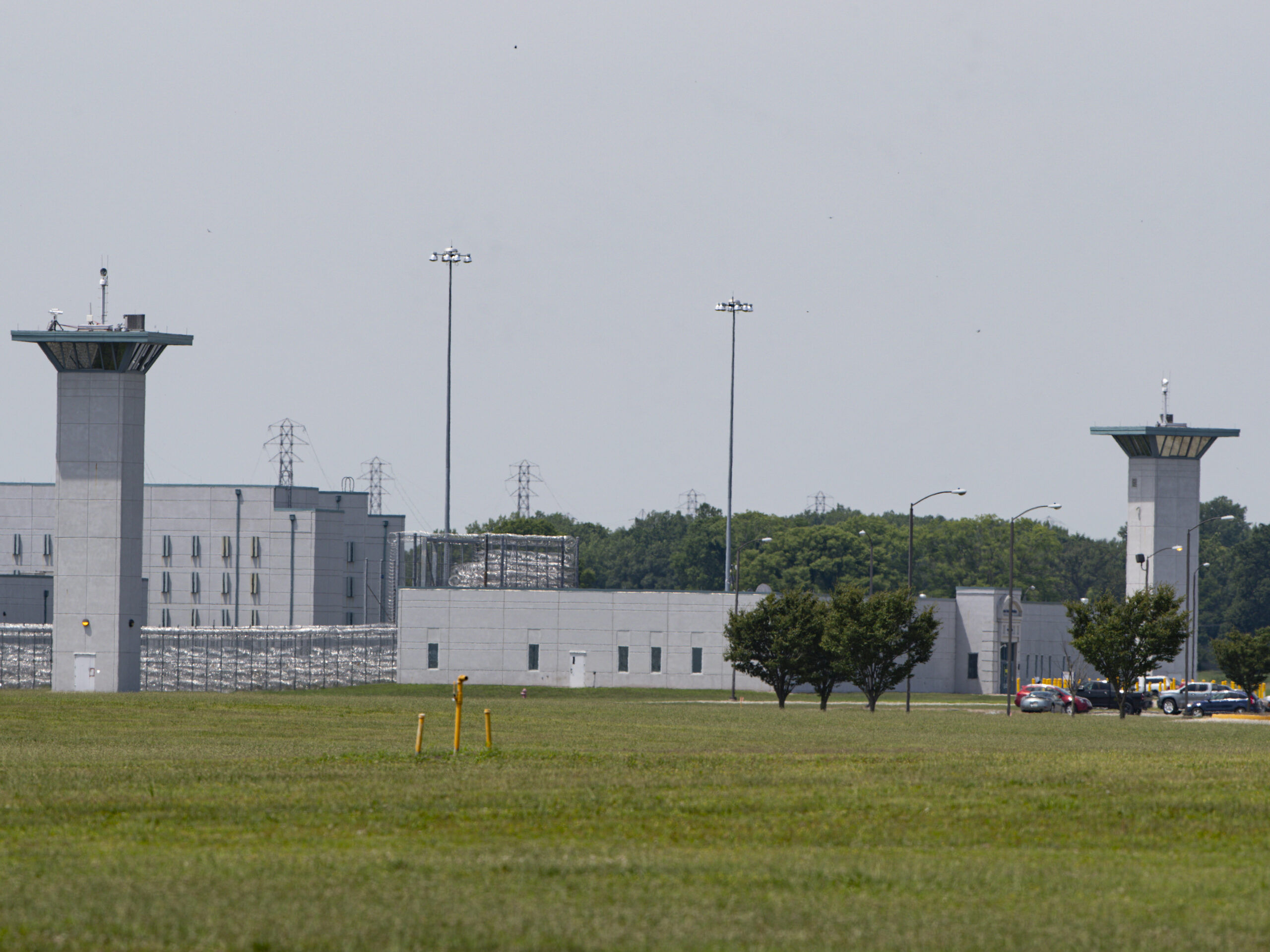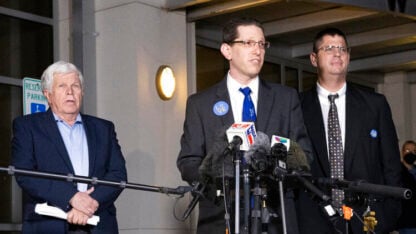Supreme Court Clears Way For A 2nd Federal Execution

The entrance to the United States Penitentiary Terre Haute, Ind., is seen on Wednesday, where Wesley Purkey, convicted of a gruesome 1998 kidnapping and killing, is awaiting execution.
Michael Conroy / AP
The Supreme Court early Thursday denied appeals to stay the execution of Wesley Purkey, clearing the way for his death by lethal injection. It would be the second federal execution since they resumed this week after a 17-year hiatus.
Purkey, who is on death row at the United States Penitentiary Terre Haute, Ind., was convicted of the kidnapping and murder of a 16-year-old girl in 1998.
His lawyers argued that Purkey, 68, suffers from advanced Alzheimer’s Disease and doesn’t understand why he’s about to face the death penalty. Purkey’s religious adviser has also appealed to the high court, arguing that his religious obligation to be present for the execution put him at risk of exposure to COVID-19.
The appeals were rejected in two 5-4 rulings early Thursday, with the liberal justices dissenting.
Justice Sonia Sotomayor wrote that “proceeding with Purkey’s execution now, despite the grave questions and factual findings regarding his mental competency, casts a shroud of constitutional doubt over the most irrevocable of injuries.” She was joined by justices Ruth Bader Ginsburg, Stephen Breyer and Elena Kagan.
“Purkey is mentally incompetent to be executed and, at minimum, is entitled to an evidentiary hearing to evaluate his mental competence before the Government proceeds with his execution,” Sotomayor wrote.
It was not immediately clear exactly when Purkey, who was originally scheduled to be executed Wednesday evening, would receive the lethal injection.
The high court’s decision came after U.S. District Judge Tanya S. Chutkan of the District of Columbia imposed two injunctions against Purkey’s execution, citing arguments that he is not competent to be executed.
An appeals court late Wednesday upheld one of the injunctions, which was then appealed to the Supreme Court.
Chutkan is the same judge who sought to block Tuesday’s execution of 47-year-old Daniel Lee, who became the first federal prisoner to be put to death since 2003.
Lee was convicted in the 1996 murders of a married couple and their 8-year-old daughter.
Lee’s final words were: “You’re killing an innocent man.”
Another inmate, Dustin Lee Honken, who shot and killed five people, is scheduled to be executed on Friday. Keith Dwayne Nelson, who kidnapped, raped and strangled a 10-year-old girl, is set to be executed Aug. 28.
President Obama ordered a review of federal executions in 2014 after an execution carried out by the state of Oklahoma resulted in one prisoner taking more than an hour to die.
Last July, the Trump administration announced that the review was complete, and executions could resume, but a series of court challenges delayed their resumption.
9(MDAxODM0MDY4MDEyMTY4NDA3MzI3YjkzMw004))








